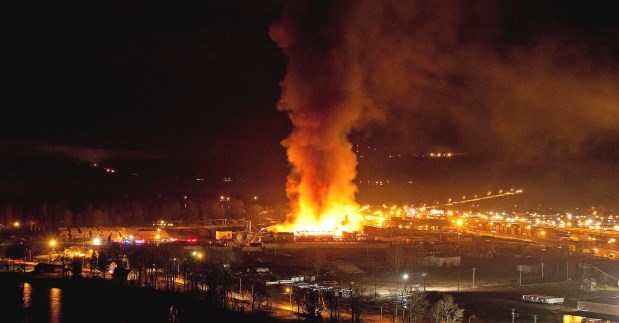On April 24, 2012, two people died from an explosion at Lakeland Mills in Prince George and injured 44 others.
Three months earlier, a similar explosion took place at Burns Lake’s Babine Forest Products, killing two and injuring 19.
Today (Dec. 2), a Vancouver lawyer has brought forward 11 recommendations for WorkSafeBC and the provincial government based on her assessment of both parties’ implementation of its new workplace safety regulations from reports following the two events.
Lisa Helps report states she spoke with several current employees at Lakeland Mills in order to make her final recommendations, talking about how they bring an unsafe working environment's attention to their employer or supervisor.
She says a common response to the question from younger or newer employees was a fear of receiving fewer shifts and less chances to earn a promotion.
“A worker who refuses unsafe work and is reassigned can look on while another worker takes over without a designated recourse for the first worker,” she writes in her report.
“The attempts by workers to draw attention to the situation at Lakeland prior to the explosion highlight the need for a stronger approach when individual employees are not successful in having the unsafe situation remedied.”
In order to keep up with the WorkSafeBC and government recommendations from 2015 currently in place, Helps’ has put forward the following suggestions:
- Begin investigations with a quasi-criminal approach when warranted, applying a flexible, situation specific criteria
- Restructure the Fatal and Serious Incident (FSI) Investigation Team from its current two-team model to a one team model
- Amend the Workers Compensation Act to remove oversight and approval by the Workers Compensation Board for charges
- Separate the Investigation Unit from the Worker and Employer Services Group Due to Appearance or Apprehension of Bias
- Amend the Workers Compensation Act to include search and seizure powers
- Designate specific police contacts, both municipal and RCMP for Criminal Code offences and ensure WorkSafe investigations know and have contacts for these previously designated Crown and police
- Create an Incident Command System for workplace accidents across agencies, including WorkSafe, Police (Municipal and RCMP), First Responders and others, which should include an information-sharing agreement between police, WorkSafe Investigators and Crown Counsel, and a hierarchy of command
- Amend the Occupational Health and Safety Regulation to strengthen worker protections
- Create a confidential database that separates identifying information of a tipster or worker from the information so that the employer cannot find out who reported safety infractions
- Create a designated Worker Ombudsperson position at WorkSafe
- Amend the Workers Compensation Act to allow for victim impact statements and publication
You can read more about Helps’ recommendations and report details via the B.C. government website.



